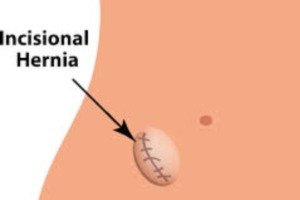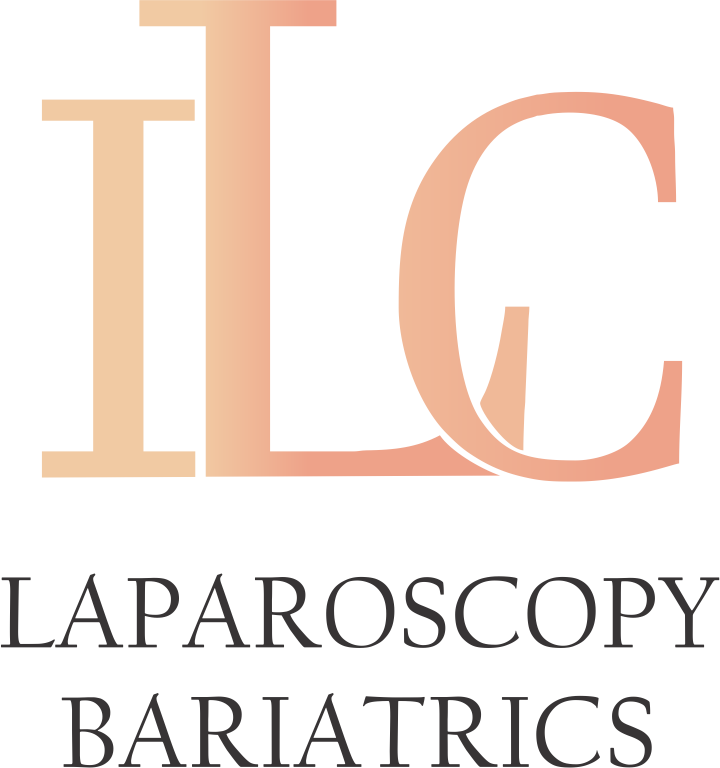- Phone : +91-7574858085, 9691481578
- Email : drachalagrawal@gmail.com
- Opening Hours : 10:00am to 08:00pm
Request a Callback
An incisional hernia is a condition where a part of the abdominal contents protrudes through a surgical incision or scar in the abdominal wall, creating a bulge or swelling. It is a potential complication of abdominal surgery and can cause discomfort, pain, and complications if left untreated. Treatment options include surgical repair, which involves closing the hernia and reinforcing the abdominal wall with mesh to prevent recurrence.
After abdominal surgery, a ventral or incisional hernia may form. It happens when an abdominal tissue or piece of internal organ protrudes through the abdominal wall.

Years of Experience
Suregries
Happy Patients
What is it, and is it Serious?
The protrusion of abdominal tissue or organ fragments through the abdominal wall is known as an incisional hernia. On the abdomen, they typically occur along or along surgical scars.
Incisional hernias are typically not dangerous. They may, however, enlarge with time and impair ordinary breathing and movement. Additionally, it may be more difficult to operate on large hernias than smaller ones.
People may not undergo surgery for an incisional hernia if it is minor; not causing any issues, and has a low risk of developing complications.
Request a Callback
Incisional hernias can occasionally result from abdominal surgery.
An abdominal wall wound may not always heal as firmly as it should and the abdominal wall recovers nicely following surgery in the majority of cases. This indicates that the abdominal wall is less strong around the scarred area and is unable to maintain its integrity in the face of abdominal pressure. Organs, intestinal tissue, or abdominal tissue may protrude through the weak spot.
Incisional Hernia doctor will take a medical history and carry out a physical examination to diagnose an incisional hernia.It includes:
Incisional hernia includes:
Frequently Asked Questions
Frequently Asked Questions with Answer
Incisional hernias are relatively common, occurring in about 10-20% of people who have had abdominal surgery. Risk factors include obesity, smoking, poor wound healing, infection, diabetes, older age, and excessive strain on the surgical incision.
Diagnosis of an incisional hernia is usually based on a physical examination by a healthcare professional. Imaging tests such as ultrasound, CT scan, or MRI may be ordered to confirm the diagnosis, assess the size and location of the hernia, and evaluate any complications.
The main treatment option for incisional hernias is surgical repair. The surgery involves reinforcing the weakened abdominal muscles and closing the hernia opening with sutures, mesh, or a combination of both. The choice of surgical technique (open or laparoscopic) depends on various factors and should be discussed with a surgeon.
The duration of incisional hernia surgery can vary depending on the size and complexity of the hernia, as well as the surgical technique used. Generally, the procedure can take between 1 to 3 hours.
Recovery time can vary depending on several factors, including the size of the hernia, the surgical approach used, and individual healing capacity. In general, patients can expect a recovery period of a few weeks to a few months before returning to normal activities. The surgeon will provide specific post-operative instructions and guidelines for a smooth recovery.
As with any surgery, there are potential risks and complications associated with incisional hernia surgery. These may include infection, bleeding, wound healing problems, recurrence of the hernia, pain, damage to surrounding structures, and anesthesia-related risks. It’s important to discuss the potential risks with your surgeon.
To find hiatus hernia doctors or specialists in Indore, you can use online directories, search engines, or consult with local hospitals or medical centers in the area. They can provide you with a list of qualified doctors who specialize in treating hiatus hernias.
Before undergoing surgery, it’s important to have a consultation with the surgeon and ask questions to clarify your concerns. Some questions to consider include:
What is your experience and expertise in performing incisional hernia surgeries?
What is the recommended surgical approach for my specific case and why?
What are the potential risks and complications associated with the surgery?
How long will the recovery process take, and what should I expect during the recovery period?
Are there any alternative treatment options available for my condition?
The recovery timeline varies from person to person, and your surgeon will provide specific instructions based on your condition. Generally, patients are advised to avoid heavy lifting and strenuous activities for 4 to 6 weeks after surgery. It’s important to gradually increase physical activity under the guidance of your surgeon.
The Amazing Steps of our Treatment
1
Book your Appointment
2
In Person Counselling
3
Weekly Followup
Get in Touch
Give Your Loved Ones Quality Care You Can Trust

Quick Link
Hernia Treatments
get in touch
©Copyright 2023. All Rights Reserved.
WhatsApp us